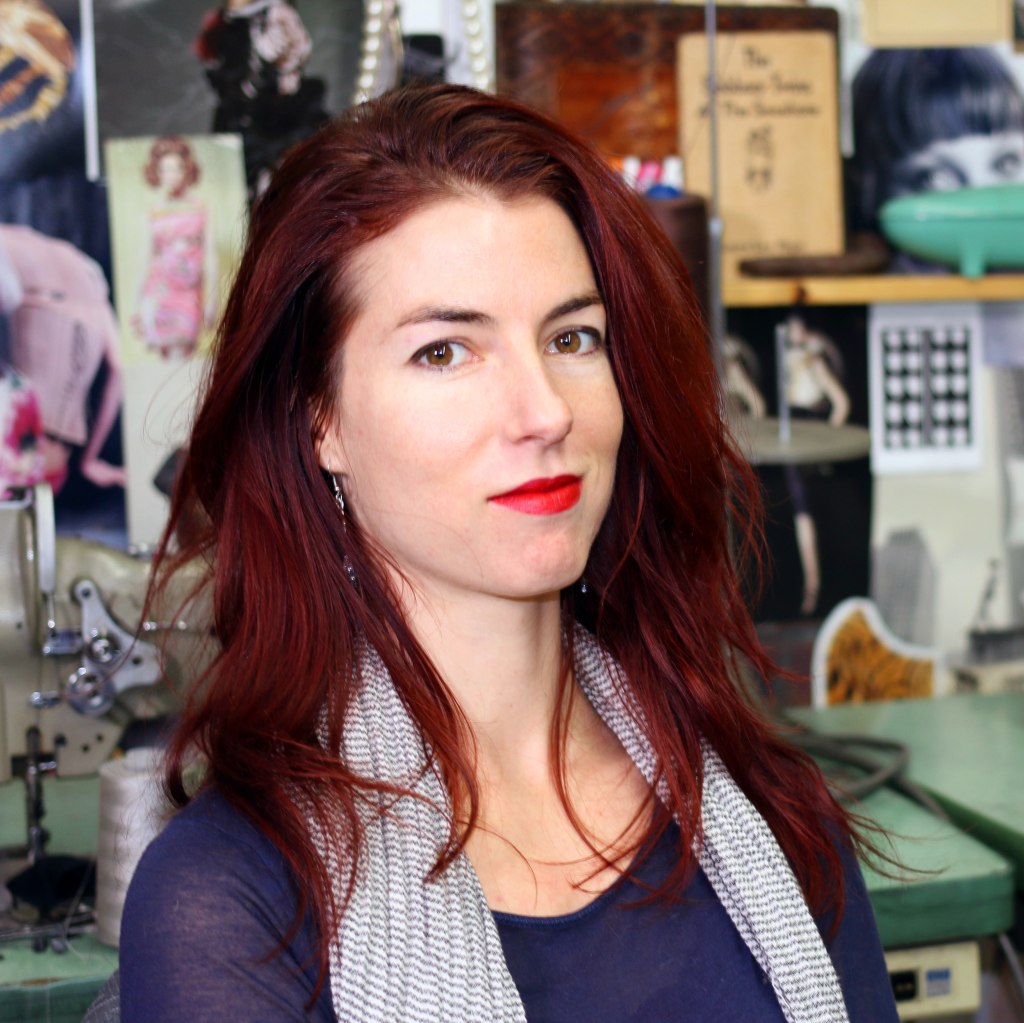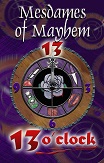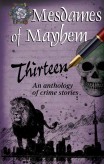Cat Mills is an award-winning documentarian whose work has been screened at leading film festivals throughout the world. The Mesdames were honored to be the subject of her film, The Mesdames of Mayhem, which readers may view on CBC GEM and YouTube. Her latest film is Do You Hear What I Hear? about noise pollution and its impact on city life.
It was not long before the Mesdames drew Cat into their world of crime…writing. She made this terrific debut with her supernatural mystery, The Dollhouse.
THE DOLLHOUSE
by
CAT MILLS
Charlotte opened the back door of the Jeep. Her dog, Artie, bounded out and immediately ran around to the side of the house, sniffing every tree and bush.
She warmed her hands deep in her pockets and surveyed her property. When she’d viewed the house three months ago, it was in the midst of summer, and the land was warm and cheery. The house looked different now—somewhat shabby, the lawn a little overgrown. Was it quaint, or eerie?
When she’d first seen it, the house looked big and magical, though beat-up. Tiny trees were sprouting in the eavestroughs. Green flecks of paint decorated the lawn. Her real estate agent had warned her about the sea air and what it could do to an old house.
Now she didn’t know how to feel. A weird energy coursed through her body. Half of her wanted to explore her new home, her fresh start; the other half wanted to crawl into a hole filled with blankets and die.
A scraping noise pulled her back to reality. She noticed Artie at the back of the yard, digging furiously.
She approached him slowly, growing alarmed.
Old bricks lay in a circle. On top of them lay a round wooden cover, damp and rotting. Artie was clawing his way around the bricks. Her pulse throbbed in her neck.
Her mother’s panic-stricken voice echoed in her mind: Stay away from the well!
She grabbed Artie by the collar and pulled him toward the house. He looked back a few times before giving in and following her to the front yard. She’d fill in that well in the spring. Wells were dangerous, vile things. She didn’t want one anywhere near the house.
She took out her rabbit’s-foot keychain, slid the house key into the lock, and walked into her new life.
The house was filled with boxes, her handwriting labeling the tops. Her possessions had arrived a few days earlier. Looking at them drained her energy. Perhaps she should have started afresh with brand-new objects, none associated with her past life.
She looked out the bay window at the deep blue sea. There were a few wisps of cloud over the water; a fogbank was growing on the horizon. The setting sun had lit everything pink. The leaves on the surrounding trees were dazzling orange, red. and yellow. Everything looked warm, despite the chilly October air. This peaceful space was all hers.
She unearthed the glasses, and opened the champagne left by her real estate agent. As she drank, her shoulders fell, her body relaxed.
She crouched down on the floor and pulled a large box toward her. Slicing through the packing tape, she opened the flaps and peered in at a childhood relic—her dollhouse.
Her ex-husband had always hated it. He claimed he found it creepy. Despite her pleas, he insisted it stay boxed up in the garage, saying they didn’t have space in their home for “that monstrosity”. But Philip was gone; he’d walked out on her in a way she had grown to expect from men. He no longer mattered. This was her house. She would decide what stayed and what went where.
Her beloved dollhouse was a gift from her father. He’d painstakingly taken each measurement and chiseled every detail to create a perfect replica of her childhood home. Its furniture was a near match for the real thing. When she gazed into it, she was transported back to the 1960s by the shag carpet, record player, and avocado-colored bathtub.
In the living room, she found three bubble-wrapped dolls: her mother, her father and herself. As a child, she’d marveled at the mini-people. Now, seeing them as an adult, they looked generic and vague. The only thing that identified them were the small wigs glued to their wooden heads.
Lovingly, she placed her father in the basement workshop next to the wooden worktable. Beside him, on a stool, she placed herself. It was a special treat to watch him work, because he was always busy and rarely at home.
Sometimes when he worked on the dollhouse, he would tell her about the war. Though he never took his eyes off what he was doing, she could sense him drift back to France. Often, he would go quiet. She’d felt embarrassed by his silence, and would look away from his face, focusing instead on his gold watch. She could still hear it: tick, tick, tick. She struggled to recall the sound of her father’s voice, but she never forgot the sound of the watch.
To this day, she refused to wear a watch or keep a clock in the house.
She unwrapped the doll of her mother, letting her hands glide over the elegant green dress and her mother’s dark hair. She placed her mother in the master bedroom, the one room in the dollhouse that remained unfinished. In their original home, the master bedroom had a grand four-poster bed, scarlet drapes, and antique furniture. The room in the dollhouse was white. Bare. Ugly.
Looking back, she thought she’d been a disappointment to her mother. She had been a tomboy, and her mother a lady. The only thing her mother talked to her about was her father: his philandering ways, how badly he treated them both, and how he had a family elsewhere. Charlotte had never known whether this information was true, or what she was supposed to do with it.
She gently swung the front of the dollhouse closed and placed the hook on its latch. She ran her fingers down the length of the cord at the back, plugged it into the wall, and flicked the switch. Every room lit up magically, except the master bedroom light. The bulb there had a slight flicker; she would have to replace it.
She walked over to the couch and slumped down on it. She took a sip of champagne, and admired the dollhouse: its frosted glass windows, red front door, and carefully crafted flower bed edging the front path. Had her parents ever been happy? Was that the reason her own marriage had been so unbearable?
She placed her wine glass on the coffee table and put her head down on the armrest. Artie curled up on the small rug by her feet. She felt her heavy eyelids close—just before a shadow moved inside the dollhouse, and a tiny door closed.
#
Ambrose was a beautiful town, if you could call it a town. It was more like a foggy shoreline, with the occasional cluster of houses, and ports used by fishermen for two centuries.
Weeks passed, and Charlotte slowly filled her large, empty home with woolly blankets, candle holders, and colorful vases—even a piece of local art showing the foggy harbor. She met a few neighbors, friendly busybodies who were curious about the single woman From Away who lived in the big house.
Her job interviews had gone well. The region was in desperate need of medical professionals, even assistants like herself. She needed to be busy, so her mind would not drift to other, unwanted places.
One afternoon, she treated herself to a bouquet of flowers. She’d filled a vase with water when her eyes glanced over to the dollhouse. How quiet it had gotten outside; the normal cacophony of seagulls and distant traffic was gone.
She put down the vase and opened the dollhouse . Her eyes fell on her mother’s doll, standing in the master bedroom. Her glance drifted down to the garage, where her own doll sat alone on the stool.
Father was missing. Her blood went cold.
She looked in every room and couldn’t find him. She opened armoires and moved beds, but he was gone.
She stared down at the dollhouse, her arms limp at her sides. Where could he be? She walked to the bay window and looked out into her backyard. The brick well lay hidden by the tall grass. Its rotten wooden cover glistened with damp. Everything looked bleak. Foggy. Dull.
She looked back at the dollhouse. Her father had carved a plank and painted it green before he’d attached it to the back of the house. It was their backyard.
Her father’s doll was standing in the middle of the yard.
Charlotte picked up the doll and threw it into the dollhouse. Her hands trembled uncontrollably; her head pounded. She needed to get away.
Artie leaped up from the couch, and started jumping and whining. She grabbed his leash, opened the front door, and he bounded out.
#
She was 12 years old. It had been a hot, humid summer—the kind that leaves a sticky layer of sweat and dust all over one’s body. She’d been away at camp in the Laurentians, swimming in the cool lake waters and fostering a crush on the cute boy in the cabin next to hers.
She’d planned on taking the bus home. Her parents never picked her up from camp; they were always too busy with work or social gatherings. So, when she approached the bus with her duffle bag over her shoulder, she was shocked to find her mother waiting in their old, mint-green Cadillac.
Her skin prickled; something was very wrong.
As they drove over the bumpy dirt roads, her mother was quiet. Charlotte looked out the window, and waited for her to speak. Eventually, she did.
Her father was gone; he’d left in the middle of the night with his suitcase. He had finally abandoned them, her mother coolly explained as she changed lanes.
Charlotte remembered feeling empty. It wasn’t just the abandonment that chilled her; it was her mother’s indifference.
It was the longest day of her life.
She sat with Artie on the edge of the pier, looking out over the stormy waters. The whitecaps were growing. The wind was picking up, but she didn’t notice. She was looking into the past, and all she saw were the trees passing by the Cadillac’s window as her mother gave her the news that shut part of her heart away forever.
After her father left, Charlotte’s mother took on a new life. She laughed more and was nicer to Charlotte. They started going to galleries and bonded over art. She’d lost her father, but finally had a mother—a mother who became fiercely protective of her, who gave her an early curfew so she wouldn’t get into trouble.
That’s when her mother became terrified of wells. She told Charlotte stories about children falling into them and being trapped forever. Charlotte started having nightmares about being at the bottom of the well, the only sound a clock slowly ticking.
Rain started to pelt down. Artie whined, shaking Charlotte from her memories. She looked up and noticed a black storm cloud overheard. The rain was rapidly picking up, the wind blew a spray of sea mist into her face. She grabbed Artie’s leash, and together they raced home, her clothes growing wet and heavier by the second.
The power was out when they got back inside. Charlotte flicked the switches in vain. A crack of lightning lit up the windows. She darted around the house, opening the windows to close the outside shutters.
Boom! Crack! The storm was directly overhead. Artie whimpered. Charlotte grabbed him and climbed onto the couch, pulling the blankets around them both. Her eyes locked on the flashes of white light outside.
She fell into a dark, confined place. Her whole body ached. She was wet, up to her shoulders in cold, muddy water. She couldn’t feel her legs. Was she floating or touching the ground? Darkness enveloped her. Every sound was muffled, everything except the ticking of a clock.
Tick. Tick. Tick.
She bolted upright, clutching her throat, shaking and covered in a cold sweat.
The storm was still raging, but the thunder was gone. Her eyes fell on the dollhouse. The lights were on. The front of the house was open. Her father’s doll was gone.
She couldn’t see him, but she knew where she’d find him.
She ran outside, barefoot. Her feet squished in the waterlogged soil; cold mud squeezed up between her toes. Her cardigan stuck to her arms.
A bolt of lightning lit up the sky as she trudged forward.
Stay away from the well!
She grabbed its rotten wooden lid. It felt like a thick sponge and splintered in her hand. She heaved it aside and stared down into the darkness.
The storm silenced. The world disappeared as she stared down into the well. Then she heard it.
Tick. Tick. Tick.
Muddy water soaked into her jeans. Her fingers sunk into the soil, water bubbling around. She knew why her mother had kept her away from their well.
Finally, she cried.
#
Next morning, the sun was bright, the brightest Charlotte had ever seen. It pierced through the few remaining leaves on the trees, making them look like fire.
Charlotte crouched over the dollhouse. Carefully, she spread white mortar on a tiny clay block. With the precision of a surgeon, she placed the final brick in place. A small circle of red bricks stood out against the painted green grass.
She left her mother’s doll in the bedroom, where it was sterile and cold. That is where she would stay. Alone.
Lovingly, she picked up her father and smoothed out his shirt. She gazed at his tiny wooden face and blond wig. There were no words to say; nothing left to feel. She put her father’s doll into the well. Slowly, she placed the lid on top.
She took her own doll out of the workshop and slipped it into her pocket.
The storm was gone; the sunlight had chased away the darkness.
She led Artie across the dirt road. Together, they walked past the brambles to the shoreline. There, she climbed on top of a large boulder. Artie followed her, his claws scraping the rock. He sat down beside her.
Together, they watched the glass-like water and a lonely blue heron fly by.
It was time to put the dollhouse back in the box.
THE END




























